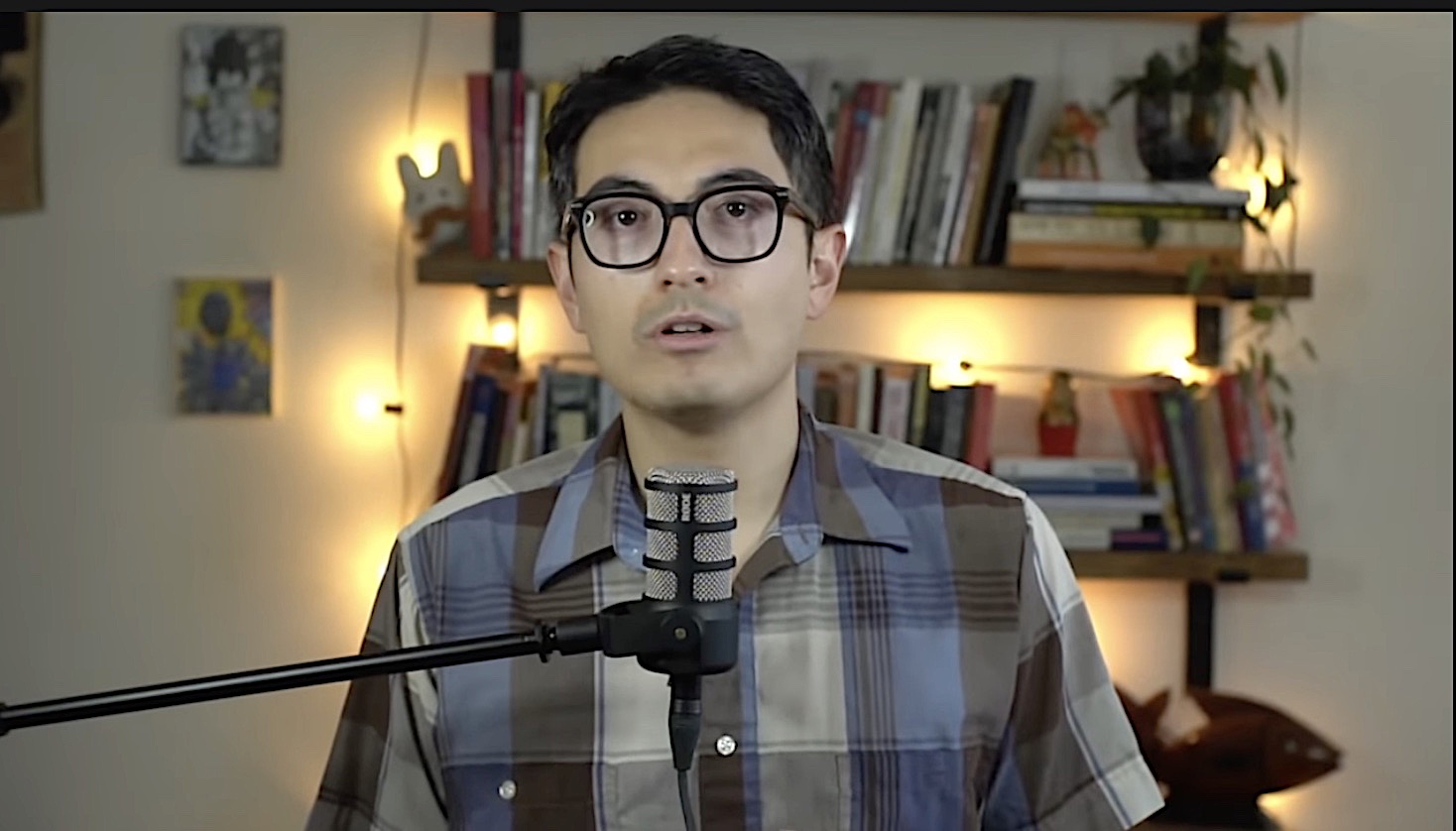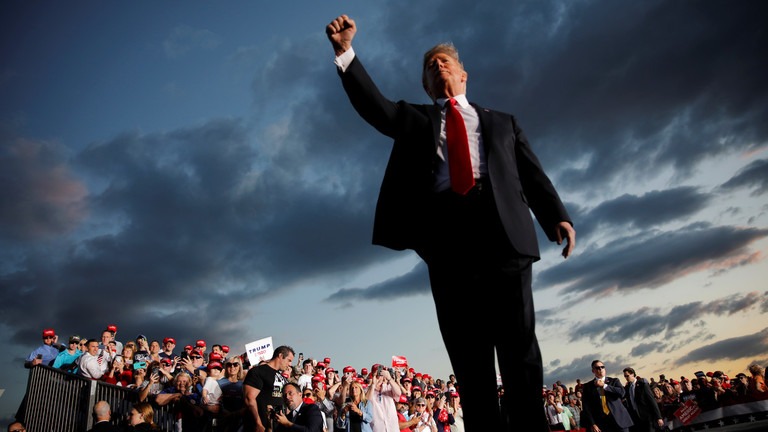Reflections on Southeast Asia’s [Largely Forgotten] History: The Sino-Vietnamese Conflict
|
|

A soldier of the Vietnam People’s Army armed with an RPG-7 rocket-propelled grenade launcher defending Lang Son in 1979. Wikimedia.
T
his guy wanted the "truth" [about a complicated subject] in a short answer. It took me at least ten years, if not more, of long hours of independent research and study to begin to understand where the lies are and how to discover the more nuanced truth. The guy does not want the truth. Don't waste your time. He wants slogans, Just tell him he's right, that's all these people want to hear. China is out to conquer the world with its 11 carrier groups terrorizing the world, 800 bases surrounding every country, threatening to bomb everyone back to the stone age, torturing and killing civilians with impunity, sanctioning and starving to death hundreds of thousands of defenseless children, subverting and destroying countries and societies all over the world. They're most evil...
LEFT:
As for the Sino-Vietnamese War, it's much more nuanced and complicated. For example, southern Vietnam, including Saigon or Ho Chi Minh City used to be Khmer under Campa rule. It came under Vietnam rule only in the 17th century. For Asians, that's like yesterday.
When the French started their colonial adventures in Vietnam during the middle of the 19th century, guess who was the biggest anti-colonial hero fighting the French. He's a Chinese by the name of Liu Yongfu, also known as the Black Flag General. I know about him because my mother's side of the family were immigrants from China's Hainan Island living in Saigon. Liu was a borderline bandit living in the mountains with a small personal army. He basically took the scalps of the first two French naval commanders who occupied Tonkin and Hanoi. He was unfortunately not fully supported by the Qing court, and he was abandoned by the Vietnamese government when things got dicey.
Here is his proclamation to the French commander who occupied Hanoi:
"Everyone knows you are thieves. Other nations despise you. Whenever you come to a country, you claim that you have come to preach the faith, but you really wish to stir up the inhabitants with false rumors. You claim that you have come to trade, but in fact you are plotting to take over the country. You act like wild animals. You are as ravenous as tigers and wolves. Ever since you came to Vietnam, you have seized cities and killed governors. Your crimes are as numerous as the hairs on the head. You have taken over the customs and seized the country's revenues. This crime deserves death. The inhabitants have been reduced to misery, and the country is nearly ruined. God and man both loathe you. Heaven and earth both reject you... (and then in the spirit of William Wallace's speech in Braveheart) ... If you are afraid to come (to a pitch battle), cut off the heads of your chief men and present them to me. Then give back the cities you have taken. I am a merciful commander, and I will let you miserable ants live. But if you delay, my army will take your city and kill you all, and not even a blade of grass will mark where you have stood."
The French commander went out to fight and it didn't end well for him or his soldiers.

Aggressive French colonialist naval officer Henri Laurent Rivière, in civilian attire. Defying orders, he took Hanoi. The Vietnamese government, unable to confront Rivière with its own ramshackle army, enlisted the help of Liu Yongfu, whose well-trained and seasoned Black Flag soldiers were to prove a thorn in the side of the French.
The Black Flags had already inflicted one humiliating defeat on a French force commanded by lieutenant de vaisseau Francis Garnier in 1873. The arrogant Rivière would prove their second French scalp.
Needless to repeat, the communist movement of Vietnam in the person of Ho Chi Minh (Chinese name of Nguyen Tat Thanh) was made possible by the CCP. Everyone glorified the Viet Minh victory at Dien Bien Phu, but one should remember that the Viet Minh was created in China. It was supplied by communist China. The soldiers were trained by the experienced PLA. China probably also sent hundreds of thousands of soldiers to the front-lines. They had to do so quietly as they did not want to be seen sending soldiers from Korea to Vietnam killing a lot of Western soldiers. The CIA knew about it and certainly have lots of confidential records about it. The US probably based on this information to get involved in Vietnam. They were concerned about the communist domino. It is a historical fact that North Vietnam in the Vietnam War was strongly supported by China, which sent men, arms, and food during times when China was suffering from embargoes and famines. Part of China's own problems stemmed from its break with the USSR after Stalin's death, when Khruschev began to de-Stalinize. Not only did China lose even its friends in the USSR camp, it lost USSR experts helping it industrialize, and it had to repay all loans in gold to the USSR, meaning it had no cash to buy food from friendly HK smugglers when they needed the food. In any case, China protected North Vietnam by declaring in a secret letter to the US that US soldiers must not cross the 17th Parallel. It was similar to the earlier warning by China to the US not to cross the 38th Parallel. US learned the lesson of the Korean War and never attempted a land attack on North Vietnam. In 1969, China had a serious border war with the USSR. Just like in the Korean War of 1950 and the Indian Border War of 1962, Soviet soldiers didn't believe that China would fight a war against the nuclear armed USSR for a river island in the middle of nowhere. The Zhenbao Island claimed by both China and Russia would become Chinese territory in the 1995 Sino-Russia Border Agreement. China showed the USSR that it would not be bullied. Not only that, it marked the beginning of the fall of the USSR twenty years later. After the fighting began in 1969, the USSR failed miserably in trying to get the other communist countries and communist parties to condemn China. Even China's archenemy India (following 1962) at the time said that it was the fault of the USSR. In 1969, the USSR was still at the height of its power. When Kosygin tried to call Mao for some diplomacy, the Beijing operator slammed the phone on the Soviet leader. Kosygin eventually had to visit Beijing to stop the hostilities. He was only allowed to conduct diplomacy at the cold and lonely Beijing airport. Full-out war was averted but China did not get bullied. This little action got Nixon's attention and respect. Two years later, Nixon would do his pilgrimage as well, and in the middle of the Cultural Revolution. Trump and his China hawks and the entire Washington Swamp with their apparatchiks somehow in a grand delusional fashion believe that they can bully China today is laughable and self-destructive. Look what hubris can do to people's heads.
In this Sino-Soviet conflict, eventually Hanoi would stand on the side of the USSR. Things began to look suspicious to China. The Hanoi government had ceded all South China Sea (SCS) claims to China in 1958. Once it became apparent that final victory of the Vietnam War was at hand in 1975, Hanoi began retracting that agreement. It was completely voided in 1979. By that time, Hanoi had been creating a refugee disaster of the Boat-People, most of whom were ethnic Chinese who had lived in Vietnam for centuries. My mother's side of the family was almost completely ethnically purged from Vietnam. My uncle was a boat-people. Thousands died at sea and in refugee camps. My uncle lived in a sampan for over a year outside of Singapore, being denied entry, eventually ending up in Malaysia's Bidong Island camp. Its nickname in Chinese means dolorous. These are events that happened to my family, not hearsay or lies from the Western MSM.
Given Cambodia's geographical location and its poor historical relationship with Vietnam as a victim of Vietnamese invasion, China has always kept good relations with Cambodia as a counterweight to Vietnam. The communist movement of Cambodia Khmer Rouge was no doubt supported by China, as it was later supported by Cambodia's King Sihanouk, who was very friendly with Beijing, but was ousted by the US supported Lon Nol. After the Vietnam War, border clashes occurred with some regularity between Vietnam and Cambodia. It's not so simple as a flash point of global geopolitics. A lot of Cambodians to this day hate the Vietnamese. At the end of 1978, Vietnam invaded Cambodia and occupied it. Vietnam in effect became the hegemon of SE Asia and the Annam peninsula. In 1979, China was just opening up. China established official relations with the US on Jan. 1st. Why did it want to have a war with its neighbor Vietnam? Here is another clue. In 1979, aside from voiding its agreement vis-a-vis SCS with China, Hanoi had given Cam Ranh base to the USSR. Let us not forget that at the time, China and the USSR were not at the best of terms. It takes only a few hours for the Soviet marines to land on Hainan and only minutes for its planes to bomb Hainan's cities. With the backing of the USSR, Vietnam was able to invade Cambodia and kick out the Khmer Rouge, at the time supported by China and less openly by the US as well (TP is absolutely correct in this regard). The balance of power in SE Asia, China's backyard, was thus lost.. Furthermore, far from Western eyes was the intrusion of the Vietnamese into Chinese territory. This is what happens to the affliction of hubris. Vietnam had just defeated the US, conquered Cambodia, and had USSR ships and planes within sight of China's coast. What can China do?

The challenging terrain and dense jungle conditions created a huge logistical headache for the Chinese army.
Chinese border soldiers discovered to their chagrin that some heavily wooded high mountain peaks near the border but within China were quietly occupied by the Vietnamese and fortified. They were very hard to dislodge without great loss of life. Protests obviously went to deaf ears. A few explosions would get some attention. Deng declared his intentions to fight a limited border war with the US and the USSR. Everyone knew what was coming. China knew the area well. It was never surprised by how hard the terrain was. They had been supplying Hanoi through these mountains for years. Even over this difficult terrain, within one month, the Chinese army reached its objective of Lang Son, which was about 150 km of weakly defended easy terrain to Hanoi. Characteristic of how China has fought border wars, the Chinese army unilaterally ended the war and went home, retaking all of the fortified positions occupied earlier by the Vietnamese inside Chinese territory. The Vietnamese would never try that again. By the end of the war, the Vietnamese had moved most of their army and weapons from Cambodia to defend their capital. Pathet Lao, the Laotian communist movement also helped into existence and success by China was at that time firmly in the USSR and Vietnamese camp. This Sino-Vietnamese border action basically told Pathet Lao "don't fuck with me," and China had a quiet border with Laos ever since. The most important result came from the USSR, which sat around watching their puppy getting kicked. The experience told Vietnam not to depend on big brother in a real fight with China, Cam Ranh notwithstanding. In 1991, upon the fall of the USSR, China and Vietnam signed an agreement on their land border. Laos followed suit shortly after. China's one-month border action basically guaranteed peace for the SE Asian peninsula ever since. This view is very different from the one we read in the MSM. It looks deeper into history and about other events around the world at the time. It may not be complete. It may not even be 100% accurate. But it's more than what MSM can provide. It's certainly not short enough to satisfy morons who live and die by slogans like "hope," "change," or make some limp prick big again. It's stressful to learn the truth and sometimes to tell the truth, but that's what we do at CWG (China Writers Group). —Peter Man
- If you approve of this article, please share it with your friends and kin.
- Help us expand our reach. Defeat appalling hypocrisy. Lies cost countless lives.
- We must act together to smash the VILE Western disinformation machine.
- This is the Lying Machine that protects the greatest evil humanity has ever seen.
- YOU know what we are talking about.
VIA A BACK LIVE LINK.

















